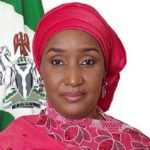An expert in the implementation of Nigeria Legal Metrology System, Yabagi Sani, has expressed worry over some sections of the Petroleum Industry Bill (PIB) currently before the National Assembly particularly the creation of a Nigeria Petroleum Commission which would undertake measuring, verification, testing and certification of all equipment related to petroleum products.
Speaking at the weekend in Abuja, Sani stated that “the PIB is indeed a commendable and transformative effort towards the sanitation of the petroleum industry.
“However, it must be pointed out that in addition to its other lapses as they may be, the proposal contained in Chapter 2, regarding the petroleum regulatory commission, especially as section seven (ee) translates to a clear usurpation of the activities of the Weight and Measures Act as well as the Pre-shipment Inspection for Export Act.
“It is to be noted that the creation of the NPRC in part two, paragraph 4 gives the commission excessive and exclusive powers that are contrary to global best practices and the spirit of fairness, transparency and accountability that the PIB is expected to enthrone.
“A clear infringement of powers conferred on the Honorable Minister of Industry, Trade and Investment (FMITI) in section 4 of the Export Prohibition Order of 1950, the proposal in the PIB to give the Department of Petroleum Resources (DPR) the power to issue permit, monitor, and supervise the export of crude oil, petroleum products and gas is a violation of the principles of checks and balances, transparency and openness in the conduct of government businesses,” he explained.
Yabagi further explained that “the attempt being made by those who fashioned the PIB to erode the functions of the Ministry of Industry, Trade and Investment with regards to Weight and Measures has long manifested in the actions of the DPR which has advanced argument to justify the continued exclusion of the officials of the Ministry’s Weight and Measures department at the crude oil loading terminals.
“This action of DPR is a clear violation of the Pre-shipment Inspection for Export Act which unambiguously demarcates the functions of supervising and enforcing quality and quantity of oil and gas exported from the country between the NNPC and the Ministry of Industry, Trade and Investment”.
He called on other stakeholders to prevail on the appropriate authorities especially members of the two chambers of the National Assembly to revisit the PIB with a view to amending the identified sections and provisions that run counter to the spirit and principle of transparency.
“The crux of the observation and attendant position and recommendations of enlightened observers and industry strategic players is that the PIB should not stand as it is presently drafted.
“One of such recommendation is that the issue of determining the accurate quantity of Crude oil and Gas to be lifted (custody transfer) and which can only be determined by calibrated equipment at the oil terminal falls within the purview of Weights and Measures Department (WMD), while the determination of the quality of such Crude oil is the responsibility of the Department of Petroleum Resources (DPR),” Sani stated.
YOU SHOULD NOT MISS THESE HEADLINES FROM NIGERIAN TRIBUNE
Lagos Is Second Least Liveable City In The World For 2021
Lagos is the second least liveable city in the world for the year 2021. This is according to the most recent annual ranking put together by the Economist Intelligence Unit (EIU)…
CLAIM 1: A Twitter user claims UNICEF said any efforts to block children from accessing pornography might infringe their human rights.
VERDICT: MISLEADING!






